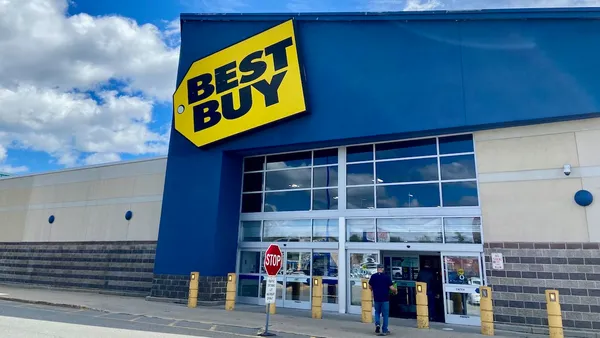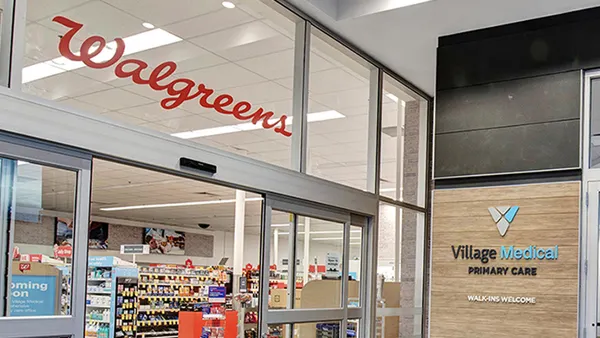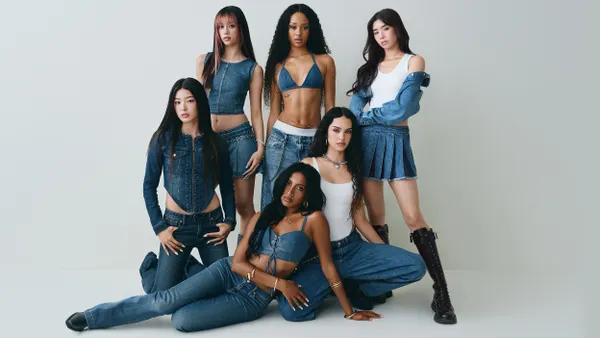LAS VEGAS – Three years ago, Dollar Shave Club cemented its reputation as the razor company when it struck up a $1 billion sale to Unilever. The digitally native brand that launched in 2011 with a viral video about men's razors had by then built up a loyal following of male shoppers who opted into a subscription program for things like razors and shaving cream.
The brand has since expanded to other categories within personal grooming – offering products like toothpaste, cologne and now deodorant. Beginning Tuesday, Dollar Shave Club members can buy $5 deodorant sticks and $5.50 wipes. The products will later open up for everyone, CEO and Co-Founder Michael Dubin told attendees of the ShopTalk retail conference Monday.
"Dollar Shave Club has evolved from a razor once a month or every other month to sort of everything we need a couple times a year. We really want to solve those problems for guys," Dubin said, adding that the company's mission is "to help guys take care of their minds and bodies so they can be their best."
As the business matures, data becomes ever more important. The more the company knows, the better it can develop and recommend products, Dubin said, adding it could get into areas like skincare, anti-aging, thinning hair, dandruff – "anything guys are concerned about related to confidence." In the future, the business may also sell third-party brands. Later this year, the company plans to deepen its member profile, using answers to questions about age, ethnicity, geography, Dubin said.
"We want to know everything about the member, we want to know about his grooming concerns," Dubin said, noting that the core customer has changed. Now, Dollar Shave Club appeals to customers whether they're 20 or 70, he said. That's a central point of a bold ad the company released last summer, called "Getting Ready," which shows men of all different types doing their morning routine and dealing with insecurities.
The company, which is working more toward a lifestyle model, has also taken steps to add culture and community with the addition of its Mel magazine. "You can’t just care for the man’s body. If you want him to evolve into someone who takes better care of himself you have to care about his mind," Dubin said. The magazine is editorially independent from the brand and aims to fill a void in men's media with content like a definitive ranking of lettuce or explorations of more serious issues.
"Men are looking for content that’s more thoughtful, that crosses some boundaries at this time of masculinity and boyhood," Dubin said, adding that he's trying to start conversations, but not in a preachy way. "It’s a delicate balance, but our goal is to start a conversation and let the world figure it out," he said.
That's a page out of a playbook many DTC brands are using these days to scale beyond their initial wildfire product to drive repeat and new purchases in their category or adjacent ones. Luggage upstart Away, for example, tested a limited-time travel accessories assortment at Nordstrom. And others within the razor category, like women's razor company Billie, are redesigning their value proposition and marketing with a social mission at the core. These kinds of long-term strategies to broaden the customer base and deepen loyalty may be what DTC brands need to stand out in today's retail environment.













